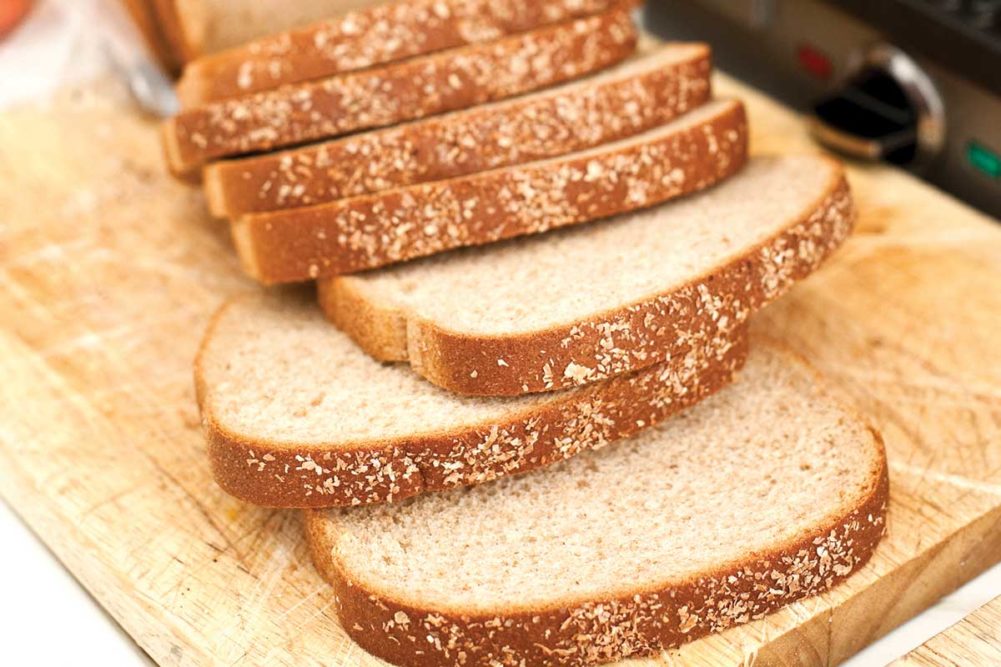Listen to the story:
Staling and rancidity are the bane of baked foods. Soft breads and cookies become hard, and the desirable texture of cakes begins to crumble as time exerts its power.
Long have bakers used many tactics to try to push back the inevitable, and ingredient technology has brought about significant advancements. Crumb softeners, emulsifiers and preservatives, even technology like gas-flush packaging and high-barrier films, have worked together to extend the shelf life of baked foods.
But today’s consumer is interested in more natural solutions for keeping bread softer for longer. In fact, while the term “clean label” is muddied and confused, there is a stand-out definition that seems at least to be the foundation for all others: no artificial colors or preservatives.
“Advances in the baking industry, such as new ingredient technologies, high-speed production equipment and larger batch sizes, have solved some of the problems bakers faced in the past,” said Kathy Sargent, global strategic innovation director, Corbion. “However, remaining competitive in a changing industry while creating consistent, in-demand products that feature cleaner labels and stay fresher for longer continues to challenge bakers.”
Extending shelf life without synthetic anti-staling ingredients while maintaining product quality can be tricky. Antioxidant- and enzyme-based solutions, however, can offer bakers an out in this push against time.
Synthetic antioxidants, crumb softeners, emulsifiers and artificial preservatives may not be in style today, but bakers have several options for anti-staling ingredients that won’t turn consumers off. Natural antioxidants, enzymes, ferments and natural mold inhibitors can stave off staling and rancidity.
“There have been many advancements in this space in the past 10 years; however, the addition of enzymes has truly revolutionized the baking industry,” said Emily Guilfoyle, bakery R&D manager, Kemin Food Technologies. “Anti-staling enzymes have helped manufacturers deliver the perfect eating experience for their product and enhance quality throughout its shelf life to deliver the best experience for the end consumer.”
Enzymes work on starch retrogradation.
“Because staling is caused by starch retrogradation or the recrystallization of starch molecules in baked goods, we’ve developed enzyme solutions that focus on modifying the structure, which in turn slows down the staling process and prevents recrystallization,” Ms. Sargent said. “While traditional anti-staling solutions are an effective way for bakers to ensure they’re able to consistently create longer-lasting bakery products, with modern advances in enzyme technology, we’re able to provide excellent performance from a natural solution as well.”
Corbion developed its Ultra Fresh enzyme solutions that can provide up to 45 days of freshness for packaged baked foods. These enzymes work in bread, buns, tortillas, Danish or cakes and are available for organic and non-GMO formulations.
“By working closely with our customers, we’re able to help them identify the specific challenges they’re trying to solve and help them maintain quality during the production process,” Ms. Sargent said. “This approach allows us to fine-tune our enzyme solutions to produce the levels of freshness, softness, moistness, resilience, tenderness, texture, tolerance and shelf life that bakers need for their specific applications.”
DuPont Nutrition & Biosciences owns and produces many different amylase and lipase enzymes, enabling bakers to customize a solution to their product’s needs and shelf life requirements.
“The amylase works on the amylopectin portion of the starches that’s producing the anti-staling effects by reducing the amylopectin side-chains and branches,” explained David Guilfoyle, group manager, bakery/fats and oils, DuPont. “Certain lipases will create mono- and diglycerides from naturally inherent triglycleride lipids in wheat flour and also from formulary triglycerides, which create some softening effect.”
J&K Ingredients offers its Soft-Bake product line for natural anti-staling.
“Using the most advanced and cost-effective enzyme blends, we are able to solve anti-staling for many customers including producers of bread, bun, organic, gluten-free and sweet goods,” said Jay Hardy, national sales director. “Our team pushes the envelope in performance duration as well as product quality.”
Kemin developed its TillaZyme products to improve corn and flour tortillas. These enzyme gum blends prevent starch retrogradation, keeping staling and its undesirable effects at bay.
Cain Food Industries’ AlphaSoft line of enzymes can be used in bread and rolls, tortillas and flatbreads, sweet goods, and artisan products. The company launched its next generation anti-staling system: AlphaSoft SR.
“The advancements we see in the AlphaSoft SR systems versus current market standards are improved softness with superior resilience and springiness while delivering enhanced mouthfeel and better moistness of bite,” said Matt Feder, vice president of sales at Cain Food.
International Food Products offers a variety of anti-staling options that can appear on an ingredient list as lactic acid, sodium or potassium lactate, or cultured sugar (dextrose). The company partners with Galactic for natural ingredients.
“Using fermentation technology, Galactic is able to produce quality, effective ingredients using raw materials found in nature,” said Jenn Adams, business development manager, International Food Products.
Natural antioxidants also offer bakers a way to stave off the oxidation that leads to rancidity. These include ascorbic acid, citric acid, tocopherols, rosemary extract and tea extract.
This article is an excerpt from the March 2020 issue of Baking & Snack. To read the entire feature on natural anti-staling, click here.





